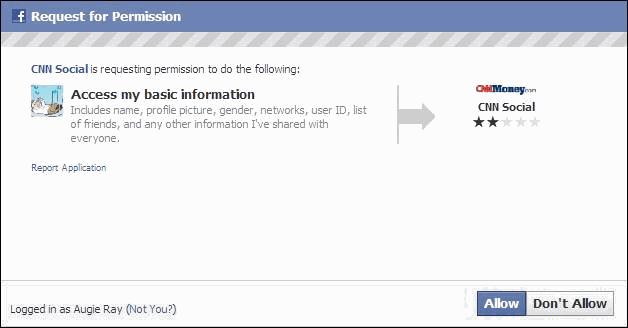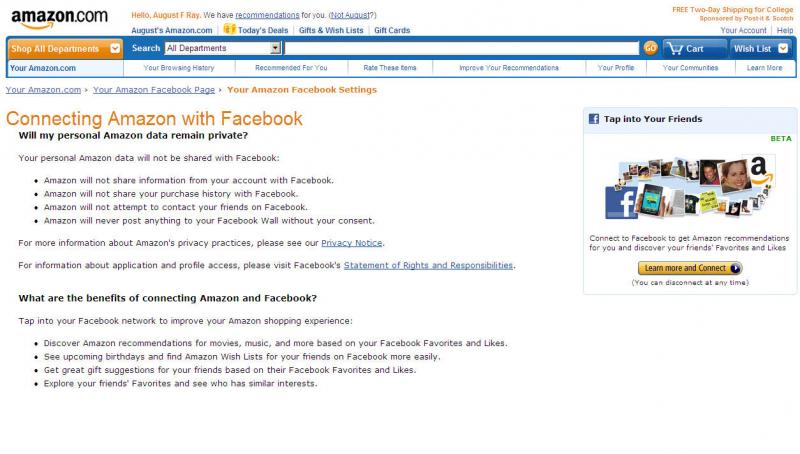Amazon Shows How To Protect Your Brand While Connecting To Facebook
As you probably know, Facebook and Amazon are allowing consumers to connect the two sites. What I find most interesting is the care Amazon is taking to inform consumers what this will mean to them and why they should do it. Given Facebook’s repeated stumbles on issues of consumer privacy, the approach being taken by Amazon is one every marketer should note and consider. What’s important about Amazon’s approach is that it's not simply leaving the communication of important information to Facebook.
CNN, for example, lets Facebook do the talking. Below is Facebook’s standard "Request for Permission" page, which is the message consumers receive when they click the button to connect CNN with their Facebook profile. What does it tell users? CNN can "access my basic information," but what will they do with it? Will they share or sell it further? Will it be made available to marketers or other users? Will my list of friends — one of the items mentioned in the list of basic information that will be shared — receive information from CNN as a result of my actions? And what information will CNN send to Facebook — every page I visit or only the ones I "like"?

Facebook, which arguably has done more than any other entity to create our more open and transparent world, isn't at all transparent when it comes to how our information will be used. This is one of the reasons Facebook has repeatedly run into privacy concerns — it's not that people don't wish to share, it’s that they want to know and control what they’re sharing.
Facebook must (and will) deal with its own issues around privacy and trust, but brands must also. Trust is a vital brand attribute — even more so in today’s social world — and leaving issues of trust to Facebook’s "Permission" pop-up window is a pretty terrible idea. That’s why Amazon's approach demonstrates a best practice for offering the benefits of Facebook connections while still controlling the message and earning trust.
Amazon has launched a page where consumers can connect with Facebook, but more importantly this page is where consumers can learn about the connection with Facebook. As you can see below, Amazon isn’t delegating important brand communications to Facebook but instead is controlling the message. Consumers are told in detail what will be shared and what will not, and the benefits are explicit and not assumed.

As we noted in the blog post, Facebook, Privacy & Lawmakers: What Should Marketers Do?, "If consumers permit sharing and are later surprised or disappointed as to what has been shared, their negative emotions won’t be directed only at Facebook but also your brand. Protect your brand by explicitly informing consumers as to the data that is shared, under what circumstances consumers’ actions will be exposed to Facebook (and not just to Facebook friends), and what personally identifiable information the brand is accessing from Facebook."
Building (or losing) brand trust in an era when trust is absolutely vital is best not left to pop-up windows and third parties. Some social media "ninjas" like to say that marketers need to give up control in the social media era, but Amazon has demonstrated how a smart brand embraces social media while retaining control of the brand message.